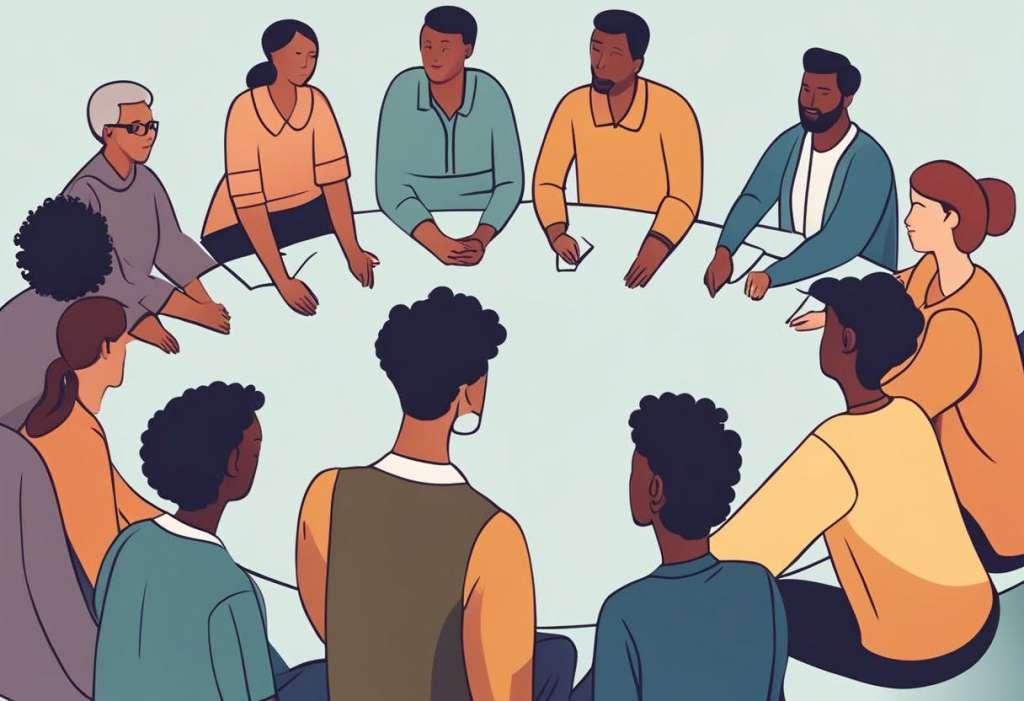LEAF Wraparound has taken a significant step towards enhancing certified trauma-informed care by introducing the Fear to Love Certification program. This initiative ensures that their provider network is equipped with standardized trauma training. Certification in trauma-informed care empowers adoption workers with the skills necessary to address complex emotional needs, fostering safer and more supportive environments for those they serve.

With this unified training approach, LEAF Wraparound is strengthening its commitment to excellence in care. Providers who earn this certification gain critical insights into trauma care, allowing them to better support clients facing various challenges. This standardized training reduces variability in service delivery and enhances overall effectiveness.
The emphasis on trauma care credentialing not only elevates the proficiency of adoption workers but also sets a new standard within the network. By adopting these structured training protocols, LEAF Wraparound ensures that each child and family benefits from the same high-quality, compassionate support tailored to their unique experiences and needs.
Strengthening LEAF Wraparound’s Provider Network with Standardized Trauma Training
The “Fear to Love Certification” program is integral in enhancing LEAF Wraparound’s network through standardized trauma training. This initiative aims to unify training for adoption workers and enhance the consistency of trauma-informed care.
Overview of the Fear to Love Certification Program
The Fear to Love Certification program is a structured training initiative focused on equipping providers with standardized trauma-informed care skills. The program emphasizes practical knowledge and understanding of trauma impacts on children and families.
Training modules are designed, ensuring that providers possess the necessary skills to support trauma-affected individuals effectively. The course also offers a certification that signifies a provider’s readiness to engage with trauma cases in a professional and informed manner.
Benefits of Unified Training for Adoption Workers
Unified training for adoption workers through the Fear to Love Certification ensures that all participants receive consistent and comprehensive education in trauma care. Adoption workers gain a deeper insight into the psychological and emotional challenges faced by children in adoption settings.
This standardized training minimizes variations in care approaches and reinforces adequate support strategies. Workers equipped with this certification are better prepared to recognize and address trauma-related behaviors, fostering a more supportive environment for children and families.
Role of Certified Trauma-Informed Care in Service Consistency
Certified trauma-informed care plays a crucial role in delivering consistent services across LEAF Wraparound’s provider network. By receiving standardized training, providers maintain a unified approach, ensuring quality care regardless of geographical or institutional differences.
The certification formalizes a provider’s trauma response capabilities, thereby establishing a benchmark for service quality. This leads to increased trust and reliability among families seeking support, as they can expect competent and compassionate care from all certified providers.
Advancing Trauma Care Credentialing and Adoption Worker Expertise
In the pursuit of improving care for adoption services, recent advancements have focused on enhancing trauma care credentialing and developing expertise among adoption workers. These efforts aim to elevate service quality and support the professional growth of those involved in trauma-informed care.
Impact of Credentialed Trauma Training on Service Quality
Credentialed trauma training plays a crucial role in elevating the quality of services provided in adoption settings. Training equips adoption workers with the latest knowledge and skills to address complex trauma cases effectively. This improved training results in increased confidence, allowing service providers to approach each case with a tailored strategy. Consistent practice across different settings is achieved as staff members adhere to established guidelines. Additionally, credentialing ensures accountability, with regular assessments to maintain high standards of care, reinforcing a commitment to delivering exceptional support to individuals and families experiencing trauma.
Developing a Standardized Approach to Trauma-Informed Practices
A standardized approach to trauma-informed practices is vital for consistent and effective service delivery. The establishment of uniform training protocols ensures that adoption workers receive comprehensive education in trauma care. These protocols emphasize shared language and strategies, enabling seamless collaboration across agencies and professionals. Standardized practices include specific methodologies for assessing trauma, recognizing symptoms, and employing appropriate interventions. Certification programs function as benchmarks, helping institutions align their practices with industry standards and creating a more cohesive framework for addressing trauma. Such uniformity is essential in maintaining a high level of competency among providers.
Supporting Professional Growth Through Certification
Supporting the professional growth of adoption workers through certification is a key strategy in fostering expertise in trauma care. Certification programs offer structured paths for skill enhancement, encouraging workers to engage in continuous learning and development. These programs often provide access to specialized workshops, seminars, and peer groups that facilitate ongoing learning. Certified professionals gain recognition for their expertise, enhancing their career prospects and motivation. In turn, organizations benefit from having highly trained staff members who bring advanced knowledge to their roles, improving service outcomes for children and families. Certification also promotes a culture of excellence and lifelong learning within the field.








